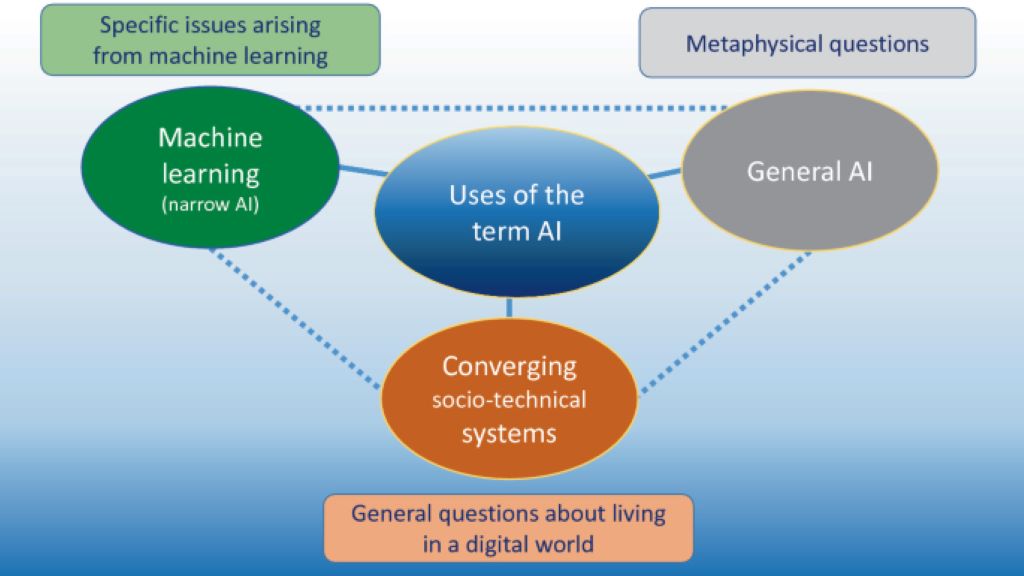The exponential growth of e-commerce and online shopping has paved the way for the widespread adoption of cutting-edge technologies such as artificial intelligence (AI) and machine learning. These technologies are being used by e-commerce companies to augment customer experiences and bolster sales. However, the use of AI and machine learning in e-commerce comes with significant ethical considerations that need to be carefully evaluated. This article will explore some of the critical ethical implications and debates surrounding the adoption of AI and machine learning in e-commerce, with a focus on technical details.
Personalization and Privacy
One of the main applications of AI in e-commerce is to power recommendation engines that personalize the shopping experience. By analyzing customer data and purchase history, AI algorithms can recommend products that the customer is likely to be interested in. This provides a more tailored shopping experience.
However, the use of personal data to power these recommendations raises privacy concerns. Customers may not realize how much of their data is being collected and analyzed behind the scenes. There are worries that companies could use customer data in unethical or discriminatory ways without their knowledge or consent.
E-commerce sites should be transparent about what customer data they collect and how it is used. Customers should be given clear choices about what kinds of personalization and customization they are comfortable with. Companies also need safeguards to prevent misuse of customer data.

Dynamic Pricing
Many e-commerce companies are experimenting with using AI to implement personalized and dynamic pricing. This involves using algorithms to adjust prices on the fly based on factors like customer location, browsing history, and purchasing power. The goal is to charge each customer the maximum price they are willing to pay.
While dynamic pricing can increase seller revenue, some forms of personalized pricing have been criticized as unethical. Customers often feel it is unfair to be shown different prices than other shoppers based on aspects like demographics or browsing history. There are also concerns that dynamic pricing could discriminate against certain groups.
E-commerce sites should consider placing ethical limits on their dynamic pricing strategies. This could involve putting constraints on how much prices can vary between customers. Companies also need to weigh revenue gains against customer trust and fairness perceptions. Transparency about pricing practices is important.
Automating Decision-Making
AI and machine learning algorithms can automate certain decision-making processes involved in e-commerce, such as fraud detection, credit approvals, and moderating customer reviews. However, relying on AI systems to make important decisions that impact customers raises ethical questions.
There are risks of biased or unfair outcomes if the algorithms are not properly audited. AI systems may discriminate against certain groups without companies even realizing it. There are also concerns about accountability and transparency if the AI makes a mistake or unethical choice.
E-commerce companies should carefully monitor their AI systems for signs of bias and improper automation. Where possible, the involvement of human oversight, judgment, and discretion can help address the ethical pitfalls of relying solely on a “black box” algorithm. Customers should be informed when AI makes key decisions about their experience.
Job Automation
As e-commerce companies aim to cut costs and maximize efficiency, AI and automation threatens to disrupt many traditional retail jobs. Cashiers, stockroom workers, and salespeople could see their roles profoundly changed or even eliminated entirely as AI and robots become more sophisticated.
While automation can drive growth, profits, and lower consumer prices, companies have an ethical responsibility to consider the human impact of AI adoption. Displaced workers will need transition support and training. Companies also should look for ways to constructively integrate AI alongside human workers rather than simply replace them outright. The benefits of AI must weighed against the costs to workers and communities.
Addictive Technology
In order to drive user engagement and sales, e-commerce sites are designed to be as frictionless and addictive as possible. AI enters the picture with features like personalized notifications, constant messages, and predictive analytics to trigger dopamine hits that keep users shopping longer.
This raises ethical questions about using AI and psychology to intentionally addict consumers to shopping apps. Companies must consider the detrimental health effects of designing apps that are intentionally hard to stop using. Ethical design should not exploit human vulnerabilities or compromise user autonomy. Companies should empower consumer agency and self-control.

Promoting Overconsumption
The hyper-personalization and prediction capabilities of AI algorithms allow e-commerce companies to push consumers to buy more items more frequently. Features like “Frequently Bought Together” and reminders about abandoned shopping carts lead users to purchase more than they may need or can afford.
This raises environmental and social concerns about promoting overconsumption and materialism beyond what is necessary. Companies must weigh the sustainability and societal impact of using AI to maximize sales. While generating profit is important, ethics demands balancing this with environmental stewardship and avoiding the promotion of predatory consumerism, especially among vulnerable groups.
Fairness in Ranking and Recommendations
E-commerce sites use various AI algorithms to rank products in search results, make recommendations, and determine which sellers featured most prominently. Biases could enter into these ranking and recommendation systems in ways that unfairly advantage certain products, brands, or sellers over others.
Companies have an ethical duty to audit and monitor their AI systems for potential issues of unfair bias or discrimination. Ranking and recommendation algorithms should be transparent and accountable. When there are a multitude of sellers and products to choose from, ethics demands that AI systems guide consumer choices fairly for all parties involved.
Fraud Detection and Account Restrictions
To combat fraud, e-commerce sites use AI and machine learning to scan activity patterns and flag suspicious transactions. But these fraud detection systems aren’t perfect. In some cases, they have falsely accused legitimate customers of fraud, resulting in bans or account restrictions.
When AI is used for fraud prevention, there needs to be transparency, accountability, and a clear appeals process for customers targeted in error. Companies should also carefully assess and eliminate biases in the algorithms’ data or training. Fraud prevention is important but must weighed against fairness and avoiding harm to innocent users.

Intellectual Property and Attribution
Humans create much of the data, content, and other digital assets used to train modern AI systems without receiving direct compensation. This raises some ethical concerns about intellectual property and proper attribution.
As they build and profit from AI applications, companies should consider fair ways to also reward the many data producers who contributed. Providing transparency and credit to source materials and creators is important for generative AI models like chatbots that train on vast amounts of human text. Ethics requires balancing the benefits of AI with fair rewards to all contributors.
Transparency
Across many ethical implications, a recurring theme is the need for transparency. In order for customers, employees, and society to understand and accept the impacts of AI, e-commerce companies must be open about their usage of these technologies.
Important context and education should be provided to users to build trust in AI systems. Transparency fosters accountability and provides assurances that ethical considerations are top of mind, not an afterthought. Ethics requires that human judgment, discretion, and oversight have visibility into AI tools. For machine learning to proceed ethically, it cannot take place inside of a total “black box.”
Key Takeaways
Some of the key ethical takeaways around the use of AI and machine learning in e-commerce include:
- Personalization must be balanced with privacy protections and securing informed user consent.
- The revenue gains from dynamic pricing require ensuring fairness, transparency, and preventing discrimination.
- Automating decisions with AI demands ongoing monitoring, human oversight, and accountability.
- Job automation should consider workforce transition support and constructive worker integration.
- Ethical design means avoiding intentionally addictive features that could exploit human vulnerabilities.
- Overconsumption promoted by AI’s predictive power has environmental and social impacts.
- Ranking/recommendation algorithms should be audited for fairness and lack of bias.
- Fraud prevention needs safeguards to avoid harming legitimate customers.
- Intellectual property and rewarding data creators are valid ethical considerations.
- Overall, transparency is critical for building user trust in AI systems.
Last Words
The use of AI and machine learning algorithms in e-commerce hold much promise to transform online shopping in both helpful and harmful ways. As these technologies continue proliferating, e-commerce companies have a profound ethical responsibility.
The benefits of personalized experiences, dynamic pricing, and automation must be thoughtfully weighed against the risks and downsides. Implementing fundamental Facebook strategies for e-commerce success involves not only leveraging the platform’s robust advertising tools but also integrating responsible AI adoption, making fairness, accountability, and transparency top priorities for ethical and effective business growth.
Frequently Asked Questions
Q: What are some of the main ethical concerns with using AI in e-commerce?
A: Key ethical concerns include impacts on privacy, fairness, transparency, job loss, overconsumption, addiction, discrimination, accountability, intellectual property, and environmental sustainability. Companies must carefully weigh the pros and cons of AI usage.
Q: Should e-commerce sites inform customers when AI is used?
A: Yes, transparency about the use of AI and disclosure of its impacts is important for building customer trust and acceptance.
Q: How can companies prevent bias in e-commerce AI algorithms?
A: Companies need to continually audit algorithms for signs of unfair bias or discrimination. Having diversity among data scientists and transparent processes can also help reduce biased outcomes from AI systems. Ongoing monitoring and human oversight are important.
Q: Is it ethical for sites to use AI to persuade customers to purchase more items?
A: This is an area of real ethical concern. While generating profit is reasonable, companies should also consider long-term customer wellbeing, avoiding manipulation or addiction, and promoting sustainability. Responsible AI usage means empowering consumers, not exploiting vulnerabilities.
Q: Do companies have an ethical obligation to support workers displaced by AI?
A: Yes, To support workers whose jobs disrupt by automation, companies should proactively take steps to provide job transition support, training, and potentially new roles. An ethical approach accounts for AI’s impacts on people and offers constructive solutions.
Q: How can companies ethically utilize customer data for personalization?
A: Customer consent, privacy protections, data security, and transparency about data usage are critical. Personalization should be tailored to user preferences and comfort levels. Providing choices empowers customers to opt-out if desired.





